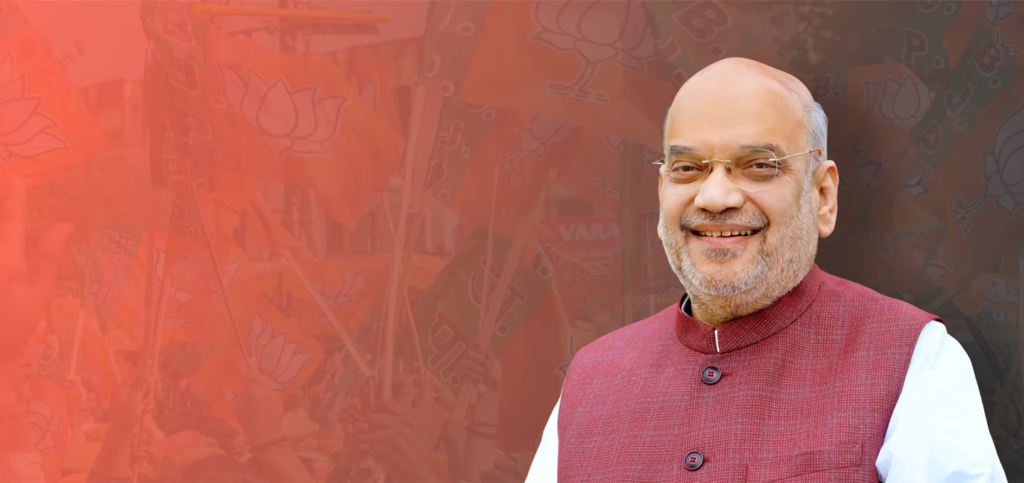In a significant development, a high-level committee comprising Prime Minister Narendra Modi, Home Minister Amit Shah, and Congress leader Rahul Gandhi is set to meet on February 17 to select the next Chief Election Commissioner (CEC). This meeting marks a crucial step in ensuring the smooth functioning of India’s electoral process, as the Election Commission plays a pivotal role in upholding democracy. The selection of the next CEC is a matter of great importance, especially with the Lok Sabha elections on the horizon.
Why is The Selection Of The Next CEC Important?

The next CEC will replace the current Chief Election Commissioner, who is set to retire soon. The Election Commission of India is responsible for conducting free and fair elections across the country, making the appointment of the next CEC a highly scrutinized process. The committee, which includes leaders from both the ruling party and the opposition, aims to ensure transparency and consensus in the selection process.
The inclusion of Rahul Gandhi in the committee is noteworthy, as it reflects a bipartisan approach to selecting the next CEC. This move is seen as an effort to maintain the credibility and impartiality of the Election Commission. The meeting on February 17 will be closely watched by political analysts and citizens alike, as the next CEC will have a significant impact on the upcoming elections.
What is The Role of The Chief Election Commissioner?

The role of the Chief Election Commissioner is not just administrative but also symbolic. The next CEC will be tasked with overseeing the electoral process, addressing challenges such as voter fraud, ensuring the use of technology in elections, and maintaining the integrity of the democratic process. Given the complexities of India’s electoral system, the selection of the next CEC requires careful consideration.
The committee’s decision will be based on several factors, including the candidate’s experience, integrity, and ability to handle the pressures of the role. The next CEC must be someone who commands respect across party lines and has a proven track record of fairness and efficiency. The meeting on February 17 will involve detailed discussions and evaluations to ensure that the best candidate is chosen.
Who is Part of The Selection Committee?

The involvement of PM Modi and Amit Shah, both senior leaders of the Bharatiya Janata Party (BJP), along with Rahul Gandhi, a prominent figure in the Indian National Congress, highlights the importance of this decision. The selection of the next CEC is not just a routine administrative task but a critical step in safeguarding India’s democratic values. The committee’s decision will set the tone for how elections are conducted in the country.
The Election Commission has faced several challenges in recent years, including allegations of bias and concerns over the misuse of technology. The next CEC will need to address these issues head-on and restore public confidence in the electoral process. The meeting on February 17 is expected to focus on these challenges and identify a candidate who can navigate them effectively.
What Challenges Will The Next CEC Face?
The selection process for the next CEC is also a test of India’s political maturity. The fact that leaders from opposing parties are coming together to make this decision is a positive sign for Indian democracy. It shows that, despite their differences, political leaders can work together for the greater good. The meeting on February 17 will be a testament to this spirit of cooperation.
The next CEC will not only oversee the Lok Sabha elections but also play a key role in shaping the future of India’s electoral system. The Election Commission has been at the forefront of introducing reforms, such as the use of Electronic Voting Machines (EVMs) and Voter Verifiable Paper Audit Trails (VVPATs). The next CEC will need to continue this legacy of innovation while addressing emerging challenges.
What To Expect From The February 17 Meeting?
The meeting on February 17 is expected to be a lengthy and detailed one, with each member of the committee bringing their perspective to the table. The goal is to select a candidate who is not only qualified but also capable of inspiring trust among the electorate. The next CEC will be a symbol of India’s commitment to democracy and fair play.
Conclusion: A Crucial Decision for Indian Democracy

In conclusion, the meeting on February 17 to select the next CEC is a momentous occasion for Indian democracy. The decision will have far-reaching implications for the country’s electoral process and its democratic institutions. The involvement of PM Modi, Amit Shah, and Rahul Gandhi underscores the importance of this decision and the need for a consensus-driven approach. As the committee prepares to meet, all eyes will be on the outcome, as the next CEC will play a crucial role in shaping the future of India’s democracy.
The next CEC will not only be responsible for conducting elections but also for ensuring that the democratic process remains transparent, fair, and trustworthy. The meeting on February 17 is a step toward strengthening India’s democratic foundations, and the selection of the next CEC will be a defining moment in the country’s political journey.
